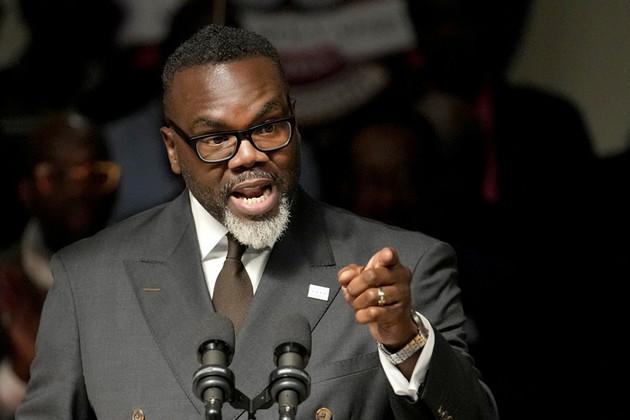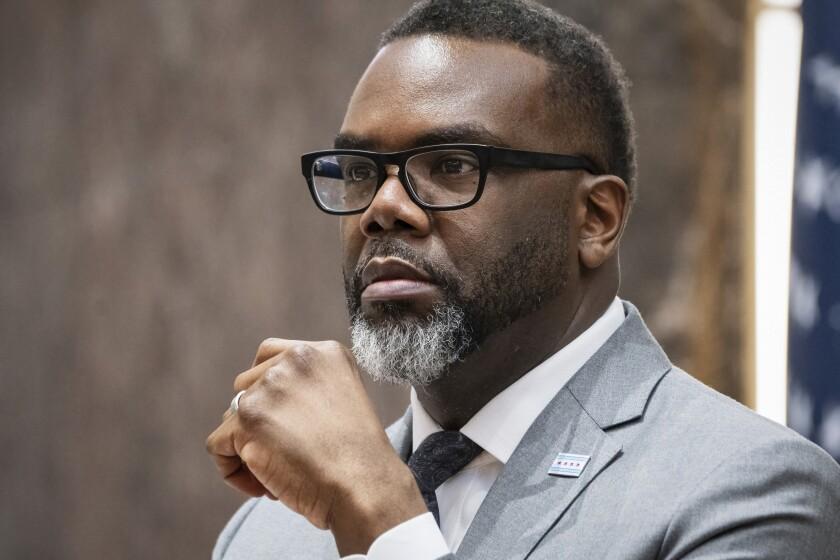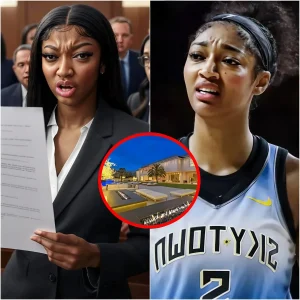Chicago Mayor Brandon Johnson, a Democrat, is grappling with a projected $1.5 billion budget deficit for 2025, a crisis that has sparked outrage among residents and intensified scrutiny of his administration’s spending priorities. The shortfall, detailed in the city’s 2025 Budget Forecast released on August 28, 2024, includes a $982.4 million gap for the upcoming fiscal year and a $222.9 million deficit for 2024. Critics, including Illinois Republican Senator Craig Wilcox, have pointed to Johnson’s allocation of over $600 million to support migrants as a key driver of the city’s financial woes, accusing him of prioritizing non-residents over Chicagoans.

Since August 2022, Chicago has spent $638.7 million on its New Arrivals Mission, a program providing shelter, food, and services to over 51,000 migrants, many bussed from Texas by Governor Greg Abbott. The city’s dashboard shows significant contracts with private companies for staffing and leasing shelters, with $150 million budgeted for 2024 alone. Johnson has defended the spending, citing Chicago’s sanctuary city status and arguing that the federal government should bear the cost of immigration. In March 2025, he testified before Congress, emphasizing that the city’s policies ensure safety by not cooperating with ICE unless criminal warrants are involved.
Residents, however, are furious. At a December 2024 City Council meeting, Chicagoans blasted Johnson for proposing a $60 million property tax hike to address the deficit, calling it a betrayal of his campaign promise to avoid tax increases. One resident, P-Rae Easley, declared, “We’re not going to work to pay for illegals,” while another, a legal immigrant, expressed embarrassment over perceived entitlements. Posts on X reflect similar sentiments, with users like @libsoftiktok highlighting the $600 million spent on migrants as a reckless burden on taxpayers. Johnson’s approval rating, reportedly at 7%, underscores the public’s frustration.
The deficit is compounded by structural issues, including rising pension costs and reliance on one-time revenue fixes, a practice dating back decades. The city’s corporate fund expenditures are projected to grow by $600 million in 2025, driven by $150 million in pension payments and $349 million in personnel costs, while revenues are expected to drop by $200 million. Johnson’s attempts to shift $175 million in pension costs to Chicago Public Schools have met resistance, and his call for “progressive revenue” solutions remains vague.
Critics argue Johnson’s refusal to reconsider sanctuary policies exacerbates the crisis. Chicago Fifth Ward Republican Committeeman Tyler Shasteen claimed that reallocating migrant spending could have yielded a surplus, given the $50 million surplus rolled over from 2023. Meanwhile, Johnson insists on equitable investments, pointing to budget allocations for affordable housing and youth employment. With a budget vote looming by December 31, 2025, and projections of deficits reaching $1.93 billion by 2027, Johnson faces mounting pressure to balance fiscal responsibility with his progressive agenda, as Chicagoans demand accountability for their city’s financial health.






